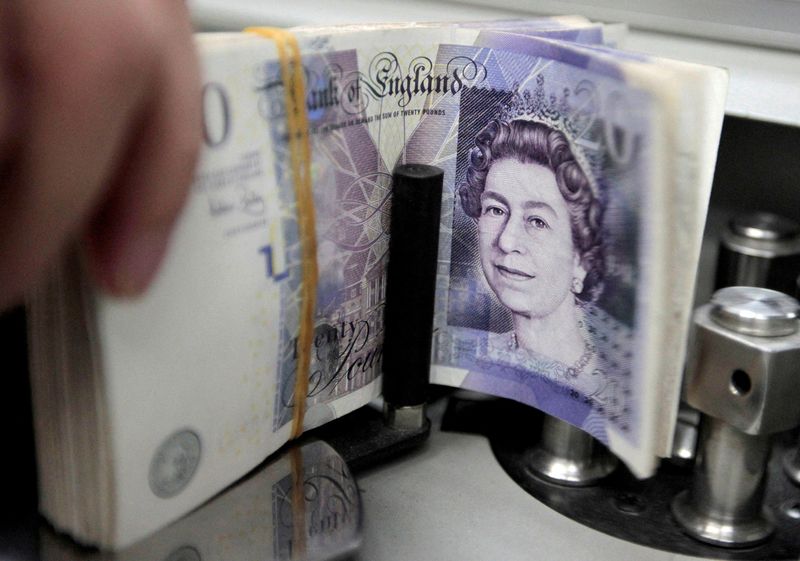By Harry Robertson
LONDON (Reuters) -The pound fell sharply on Monday, continuing a weak run that saw it drop 3.7% in September, its worst monthly performance in a year.
Sterling was last down 0.71% at $1.2115. Last week it fell to its lowest level since March at $1.2111 before picking up slightly. It is still slightly up on the year.
The euro was roughly flat against the pound at 86.6 pence, in a sign the dollar was driving the action on Monday.
{{2126|The dodollar index, which tracks the currency against six peers, rose 0.59% to 106.88, helped by data that showed the U.S. manufacturing sector took a step towards recovery in September as production picked up and employment rebounded.
There was little major British economic data although figures showed that UK house prices in September were 5.3% lower than a year earlier. Prices were unchanged month-on-month.
The final reading of a closely watched UK manufacturing survey showed that activity continued to slow sharply in September, although less steeply than the month before.
Investors have sold both the pound and the euro as the economic outlook in Britain and the euro zone has darkened after their respective central banks hiked interest rates sharply to tame inflation. Meanwhile, the dollar has rallied on the back of a strong U.S. economy and rising bond yields.
"I think the UK is in a very difficult place," said Jamie Niven, senior fixed income portfolio manager at Candriam. "If there's one area where I think recession is more likely than not, it's the UK."
Investors will be keeping an eye on the ruling Conservatives' party conference in Manchester this week.
Finance Minister Jeremy Hunt is due to speak on Monday and confirmed in a morning media round that Britain's minimum wage would rise to at least 11 pounds ($13.42) an hour from 10.42 pounds.
"Whilst not a normally market moving event, there is a risk that the Conservatives feel a need to roll the dice given the size of Labour's poll lead," said Nicholas Rees, FX market analyst at broker Monex Europe, referring to the main opposition party.

The main event in markets this week is the release of U.S. employment figures on Friday.
A strong reading would bolster the argument that the U.S. Federal Reserve will keep interest rates high for a long time - an idea that pushed U.S. bond yields to their highest level since 2007 last week.